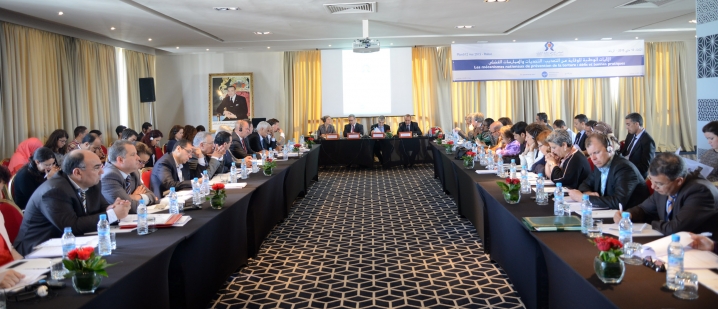National preventive mechanism against torture Morocco: a legitimate ambition for an integrated national system to protect human rights in Morocco

The National Human Rights Council (CNDH), in cooperation with the Association for the Prevention of Torture (APT), held on May 12 in Rabat, an international seminar on the “National preventive mechanisms against torture (NPM): challenges and good practices”.
In their respective statements, CNDH Chairman and Secretary General advocated for a broader mandate for the National Human Rights Council. In addition to the mandate of the National Preventive Mechanism, the CNDH has the ambition, they said, to include the mandate of the specific mechanism for monitoring children’s rights, that will be able to receive, investigate and address complaints by children in a child-sensitive manner, the discrimination prevention mechanism and the national mechanism for the protection of the rights of people with disabilities.
This international gathering was a contribution to the reflection process on the status, functioning and structure of the future Moroccan NPM, in light of the different experiences of NPMs which are already operating in other countries, following Morocco’s ratification of the Optional Protocol to the UN Convention against Torture (OPCAT). It was also an opportunity to exchange on the comparative experiences and international best practices.
The seminar brought together Moroccan national stakeholders and activists from government departments, members of the CNDH, Moroccan civil society, parliamentarians, judges, lawyers, academicians, journalists and international experts, including representatives of the Council of Europe (CoE), the Association for the Prevention of Torture (APT) , the Danish Institute against Torture (Dignity), the Office of the General inspector of all places of deprivation of liberty (France) and the national human rights institutions of Mali.
Morocco ratified the UN Convention against Torture and Other Cruel, Inhuman or Degrading Treatment or Punishment (CAT) on June 21, 1993. It started the ratification process of its Optional Protocol (OPCAT) on November 1, 2012, and deposited its ratification instruments on November 24, 2014, becoming the 76th State Party to the OPCAT.
Under Article 17 of the Optional Protocol, “each State Party shall maintain, designate or establish, at the latest one year after the entry into force of the present Protocol or of its ratification or accession, one or several independent national preventive mechanisms for the prevention of torture at the domestic level. Mechanisms established by decentralized units may be designated as national preventive mechanisms for the purposes of the present Protocol if they are in conformity with its provisions.”






















